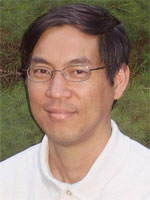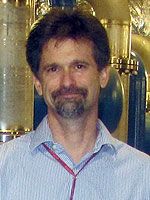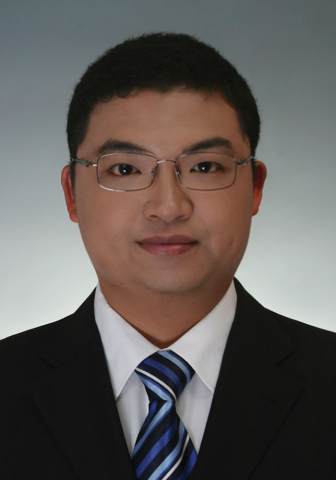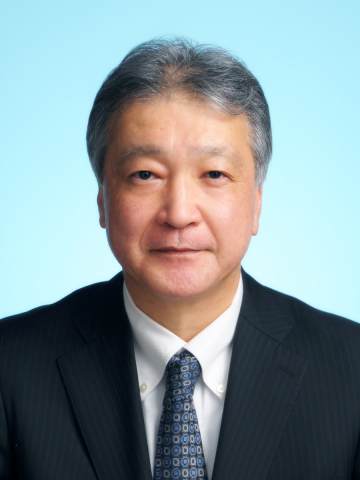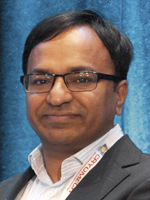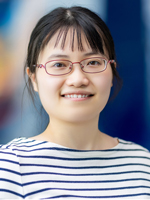Awards and Recognitions
CSA has established several awards to honor persons who have contributed to the industry and to the Society in a variety of ways. We are pleased to honor their leadership. Nominations are welcome for the various awards.
Roger W. Boom Award
(Criteria and Nomination procedure)
Boom Award Recipients
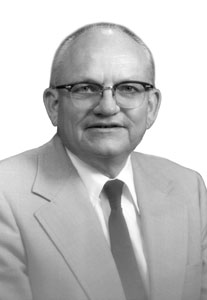
The Roger W. Boom Award is named in honor of the late emeritus professor from the University of Wisconsin. Dr. Boom’s career spanned more than thirty years during which he motivated a great number of young scientists and engineers to pursue careers in cryogenic engineering and applied superconductivity. This award was created by the CSA to be given to a young professional (under 40 years of age) who “shows promise for making significant contributions to the fields of cryogenic engineering and applied superconductivity. The spirit of the Boom Award is to recognize young people for their pursuit of excellence, demonstration of high standards and clear communications. The Boom Award is usually given every even-numbered year, coinciding with the Applied Superconductivity Conference.
- 1996 Dr. Christopher M. Rey DuPont Superconductivity, now President, Energy to Power Solutions (E2P), Tallahassee
For his contributions to cryogenic engineering and applied superconductivity in industry. Of particular note was the fact that within four years of receiving his PhD, he was involved in and made significant contributions to high energy physics, fusion and energy storage magnet technology.
- 1998 Prof. Justin Schwartz, NHMFL; now Harold and Inge Marcus Dean of Engineering, The Pennsylvania State University
For his contributions to applied superconductivity within a university/laboratory setting and in collaboration with industry. Dr. Schwartz has been involved in and made significant contributions to the development of high temperature superconductors for high field systems including NMR, MagLev and energy storage technologies.
- 2000 Dr. Chao Wang, Cryomech, Inc., retired
For his contributions to industrial cryogenic refrigeration. Of particular note are his many significant developments in the field of pulse tube refrigeration and its application.
- 2002 Dr. Franz J. Baudenbacher, Vanderbilt University
For his outstanding contribution to the characterization and deposition of high Tc thin films and Josephson Junctions and for the development of a low Tc SQUID-based microscope for imaging geomagnetic and biomagnetic fields.
- 2004 Dr. Terry L. Grimm, Accelerator R&D Division, National Superconducting Cyclotron Lab, Michigan State University; now at Niowave, Inc.
For his outstanding record of accomplishment in Superconducting Radio Frequency Cavity development and his efforts to mentor graduate students in the field.
- 2006 Dr. Jeffrey Parrell, Oxford Instruments Superconductivity
For his outstanding record of accomplishment in the development of composite Nb3Sn conductors for high field magnet applications such as high energy physics particle accelerators, magnetic fusion and NMR spectrometers.
- 2008 Dr. Gregory Nellis, University of Wisconsin-Madison
To recognize his outstanding record of accomplishment in the range of cryogenic and refrigeration research and development activities as well as for his important contribution to graduate education in the field.
- 2010 Dr. Philippe J. Masson, senior scientist at Advanced Magnet Lab
To recognize his outstanding record of accomplishment in the range of superconductivity power applications research and development activities. Dr. Masson also has made important contribution to graduate education in the field.
- 2012 Dr. Joel Ullom, project leader at NIST
For his exceptional contributions in applied superconductivity and cryogenic engineering. These contributions include the demonstration of on-chip quantum refrigerators, the development of new superconducting x-ray and gamma-ray spectrometers that provide new capabilities both for industrial materials analysis and nuclear materials accounting, and the development and commercialization of an important cryogenic system.
- 2014 Dr. Danko van der Laan, president of Advanced Conductor Technologies
For his technologically impactful while scientifically driven work on superconducting devices. His fundamental work resulted in a highly practical outcome in the Conductor-on-Round-Core (CORC) cable implantation of a coated conductor. These CORC conductors are expected to be of major importance for future large scale superconducting magnet systems.
- 2016 Dr. Luisa Chiesa, Tufts University
For her research on the electromechanical characterization of low temperature superconductors (LTS) and high temperature superconductors (HTS) for powerful magnets used in energy systems and basic research. In addition, Dr. Chiesa has established a cryogenic engineering and applied superconductivity laboratory for graduate studies, and continues to educate and mentor young research engineers.
- 2018 Dr. Jacob Leachman, Washington State University
For his research on the cryogenic properties of both hydrogen and materials exposed to hydrogen for airborne and space based applications. In addition, Prof. Leachman has established a cryogenic engineering laboratory dedicated to the study of cryogenic hydrogen for energy related applications for both undergraduate and graduate studies, and continues to educate and mentor young research engineers.
- 2020 Tengming Shen, a staff physicist in ATAP’s Superconducting Magnet Program at Lawrence Berkeley Lab in California.
For his outstanding research on high-temperature superconducting materials and magnets and especially his contributions to understanding the Bi-2212 round wire technology, improving its critical current density by intelligent processing, and demonstrating its excellent properties in prototype accelerator magnets.
- 2022 Dr. Nusair M. Hasan, a staff member at the Facility for Rare Isotope Beams at Michigan State University.
For his outstanding work on the advancement of cryogenic processes and technology, specifically relating to large-scale 2 K and 4.5 K cryogenic refrigeration and critical supporting sub-systems for particle accelerators. Dr. Hasan has also made noteworthy contribution in training and mentoring future generations of cryogenic engineers.
- 2024 Dr. Ram C. Dhuley, a staff member at Fermi National Accelerator Laboratory.
For his pioneering work on cryocooler conduction-cooled SRF accelerator cavities and his leadership for the large-scale cryogenic distribution system for the PIP-II accelerator. Dr. Dhuley has also made noteworthy contributions to the editorial activities of the cryogenic engineering community.
|
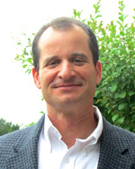
Christopher Rey, 1996
|
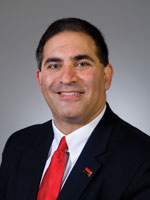
Justin Schwartz, 1998 |
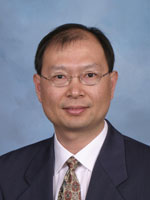
Chao Wang, 2000 |
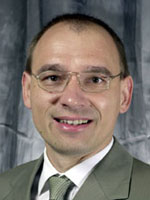
Franz Baudenbacher, 2002 |
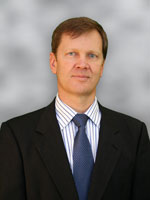
Terry Grimm, 2004
|
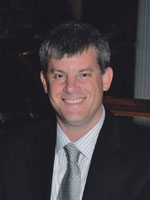
Jeffrey Parrell, 2006 |
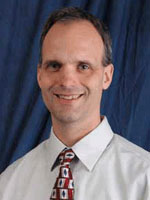
Gregory Nellis, 2008 |
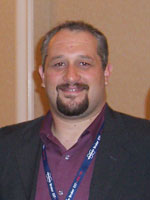
Philippe Masson, 2010 |
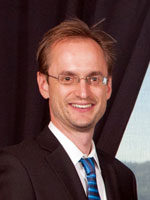
Joel Ullom, 2012
|
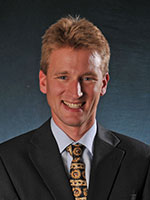
Danko van der Laan, 2014 |
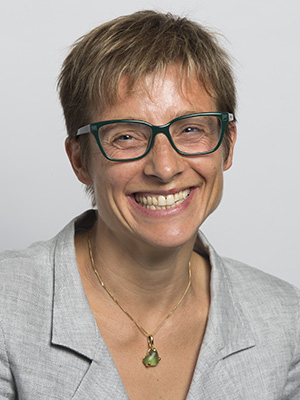
Luisa Chiesa, 2016 |
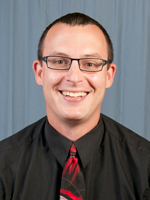
Jacob Leachman, 2018 |
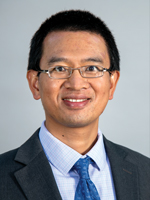 Tengming Shen, 2020 Tengming Shen, 2020 |
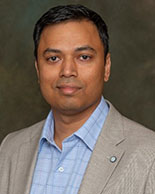
Nusair Hasan, 2022
|
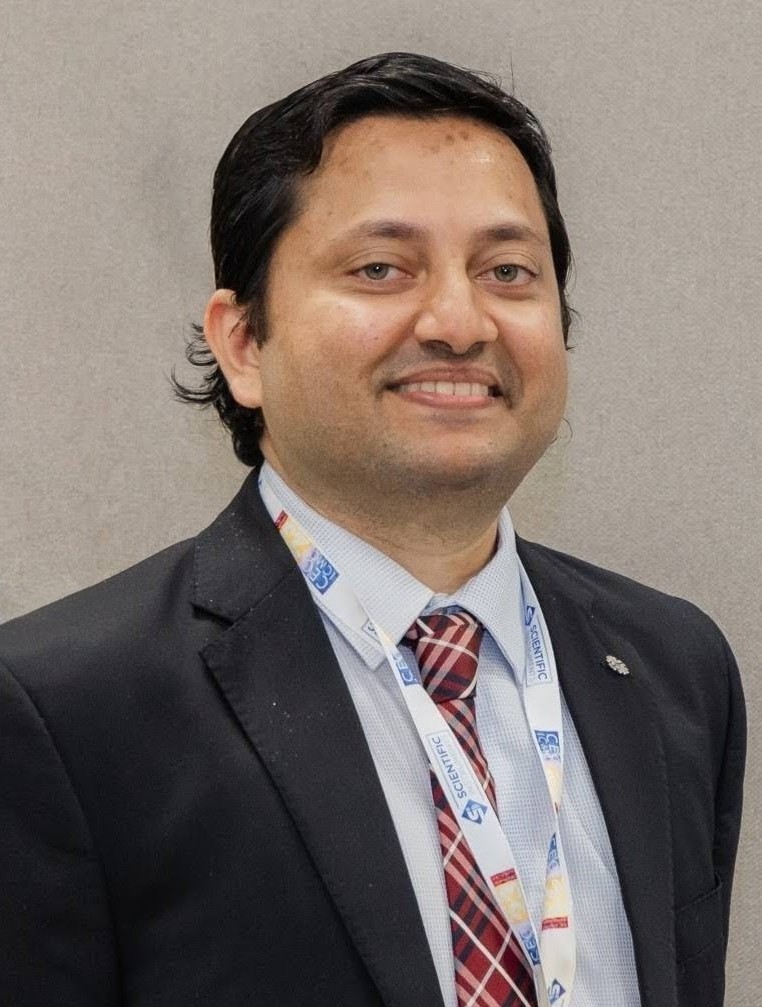
Ram Dhuley, 2024
|
|
Fellows of the Cryogenic Society of America
(Criteria and Nomination procedure)
Fellows of the Cryogenic Society of America are persons of distinction in cryogenics, and shall have made notable valuable contributions to the field of cryogenics. Such contributions need not be in research, however they must be of significant magnitude so as to justify the honor of Fellow. Fellows of the CSA are usually announced during the CEC conference.
CSA Fellows
- 2000 Dr. Traugott Frederking, UCLA (deceased)
Dr. Frederking was a consultant of nationally and internationally recognized competence in cryogenics, particularly in the area of superfluid helium properties. He authored approximately 200 publications. His professional integrity and character were of the highest. … During his career, Dr. Frederking mentored many students at UCLA. He was both a knowledgeable and a kind mentor, and often funded conference attendance (including banquet tickets) out of his own pocket for his students. He was very loyal to his students and expended a great amount of personal energy on their behalf. He was also eager and willing to help out fellow colleagues in the field.
- 2003 Dr. Peter Kittel, NASA Ames (retired)
For his technical achievements, especially his work at NASA which earned him numerous achievement awards, his editorship of three volumes of the CEC “Advances in Cryogenics,” his service on the CEC board and as Program Chair for CEC and as a director of the International Cryogenic Engineering Conference board and the International Cryocooler Conference Board.
- 2005 Dr. Rao Ganni, Thomas Jefferson National Laboratory, now at FBIR, MSU
Over the course of Dr. Ganni’s long career both in industry and at the national laboratories, he has gained a well-deserved reputation as the “go-to” guy for virtually all aspects of cryogenic design. His is a shining example of our profession at its most effective and productive.
- 2005 Dr. Klaus Timmerhaus, University of Colorado (deceased)
Professor Timmerhaus was the recipient of a great number of awards over his many years of service to the cryogenics community as a researcher, teacher and author. His membership in CSA honored the society more than we could have hoped to honor him.
- 2007 Dr. Steven W. Van Sciver, FAMU-FSU College of Engineering (retired)
Dr. Van Sciver is the author of more than 150 publications on low-temperature physics, liquid helium technology, cryogenic engineering and magnet technology, and is also author of the highly regarded textbook, “Helium Cryogenics.” In addition, he is a fellow of the American Society of Mechanical Engineers and the American editor for the journal Cryogenics.
- 2009 Dr. Glen McIntosh, Founder, Cryogenic Technical Services, now President at Cryogenic Analysis and Design, LLC
For his significant contributions to the field of cryogenics, spanning topics from early work on hydrogen at NBS, to significant advances in the understanding and use of MLI, the design of storage and transport dewars, reliable designs for complex cryogenic systems, his helpful column in Cold Facts, as well as other contributions.
- 2009 Dr. Thomas Flynn, President, Cryoco, Inc. (deceased)
For his significant contributions to the field of cryogenics, especially his numerous journal articles, textbooks, conference organization efforts and multiple offerings of the popular short course on cryogenics. So many have benefited from his wisdom, assistance and contributions.
- 2011 Dr. Peter Mason, Caltech, JPL (retired)
For his extensive and impressive contributions to the field of space cryogenics, and for his substantial technical achievements at the California Institute of Technology and at the NASA Jet Propulsion Laboratory. He also participated in the CSA Space Cryogenic Workshops and wrote a column, “Space Cryogenics,” for Cold Facts for many years.
- 2013 Dr. John Pfotenhauer, University of Wisconsin-Madison
For his contributions as a long-time CSA member and former board member, who has actively pursued and promoted cryogenics for more than 25 years. His group’s courses on cryogenics and superconductivity at the University of Wisconsin are one of the largest producers of MS students in cryogenics in the US. For his extensive publications on both fundamental and applied research in cryocoolers and particularly pulse tube cryocoolers, and having developed a computer game that students use to develop their understanding of cryogenic insulation and cooling. For his international educational contributions and services as reviewer and editor.
- 2013 Thomas Peterson, Group Leader, Fermi National Accelerator Laboratory, now at SLAC
For his outstanding contributions in the design, construction and operation of large scale helium cryogenics systems (SRF cryomodules, feed boxes, distribution and magnet systems) used in scientific research as well as for his many contributions as a long-time member of CSA and to the cryogenic community as an educator, reviewer and editor.
- 2015 Dr. Ron Ross Jr., Jet Propulsion Laboratory (retired)
For his long and supportive service to CSA and his contribution to enhancing the stature of the society internationally.
- 2017 Dr. Peter Knudsen, Senior Cryogenic Process Engineer, FRIB
For his outstanding contributions to the field of cryogenics. He has distinguished himself by providing sound process and mechanical engineering leadership to specify, assemble and ultimately commission numerous nitrogen and helium cryogenic systems. This includes work done to modify the helium refrigeration system used to test the James Webb Telescope in NASA’s JSC vacuum chamber; work on the helium refrigeration system for the upgrade of the 12 GeV project at Jlab; and work on the helium refrigeration system for the Facility for Rare Isotope Beams at Michigan State University. He is expert in helium cryogenics and shows extraordinary dedication to his work, his collaborators and to the cryogenics community. And his keen interest in teaching will contribute to the development of the next generation of cryogenic engineers.
- 2017 Dr. Peter Shirron, NASA/Goddard Space Flight Center
For his far-reaching contributions to the field of cryogenics, including his distinguished career at NASA, where he has demonstrated exceptional technical insight and developed innumerable significant cryogenic and superconducting innovations; his participation as chair of the Space Cryogenics Workshop and service as North American Editor for the journal Cryogenics; as President-Elect of the Cryogenic Society of America and a columnist for its Cold Facts magazine.
- 2019 Dr. Michael DiPirro, NASA/Goddard Space Flight Center
For his outstanding contributions to the field of cryogenics. In particular, the field of space cryogenics owes much to his foundational research and development efforts on porous plug phase separators and other fluid management devices, his technical leadership in the design and optimization of space cryogenics systems, and systems engineering expertise for studies of the next generation of astronomy telescopes. He has also contributed to the broader cryogenic community by actively participating in conferences, mentoring students and colleagues and in publishing technical papers. He is a Board member of the Cryogenic Engineering Conference and serves as a technical editor of the CEC conference proceedings. He has been actively involved in organization of scientific meetings, including the CSA Space Cryogenic Workshop.
- 2019 Joel Fuerst, LCLS-II-HE Cryogenic Systems Manager, SLAC National Accelerator Laboratory
For his outstanding contributions to the field of cryogenics. He has distinguished himself as an internationally-known, widely respected professional cryogneic scientist/engineer, having touched every major accelerator project and many R&D projects in the US Department of Energy’s Office of Science system. He is a designer and builder of cryogenic systems, a mentor of less-experienced colleagues and an effective and inspiring team leader, in demand as a reviewer of cryogenics systems for his in-depth knowledge and experience, attention to detail and willingness to share his expertise. Fuerst is a longtime CSA member, former President and stalwart supporter of the society, which bestowed on him the Robert W. Vance award.
- 2021 Dr. John Weisend II, Chief Technical Editor of Advances in Cryogenic Engineering and Section Editor-in-Chief for the European Physical Journal
For his outstanding contributions to the field of cryogenics. These include technical contributions to cryogenic projects at the SSC, DESY and SLAC laboratories; development of cryogenic groups at SLAC and ESS; organizing and teaching cryogenic classes at Michigan State University, Lund University, via the CSA and US Particle Accelerator School and mentoring of students. He is currently Chief Technical Editor of Advances in Cryogenic Engineering and Section Editor-in-Chief for the European Physical Journal – Techniques and Instrumentation. He has authored, co-authored or edited 6 books including Cryostat Design, The Handbook of Cryogenic Engineering and Going for Cold. He has served as Chairman of the Board of the Cryogenic Society of America since 2009.
- 2021 Dr. Sastry Pamidi, Professor and Chair, Department of Electrical and Computer Engineering, FAMU-FSU College of Engineering, Associate Director, Center for Advanced Power Systems
For his significant contributions to the field of cryogenic engineering related to superconducting power applications. He leads a multidisciplinary research group focusing on superconducting power applications and related cryogenic engineering. He has developed advanced closed-loop cryogenic circulation facilities to support his research in high power density superconducting devices, cryogenic dielectrics, and measurements and instrumentation. He collaborates with many research groups and several small businesses in cryogenics and superconductivity. He chaired the 2020 International Cryocoolers Conference. He serves on the boards of the Cryogenic Engineering Conference and International Cryocoolers Conference. He co-authored 200 publications in journals, conference proceedings, and book chapters.
- 2025 Dr. Wei Dai, Professor, Chinese Academy of Sciences
For his outstanding and sustained contributions to cryogenics, particularly in the development of electrically/thermoacoustically-driven pulse tube coolers, sub-Kelvin refrigeration technologies and in the related fundamental research. He has led cutting-edge cooler research at the Chinese Academy of Sciences, producing high-efficiency systems and innovations. The research on the pulse tube cooler has also translated into numerous industry applications through the collaboration with Lihan Cryogenics. In addition to his technical achievements, he has shown strong commitment to the cryogenics community through mentorship, international collaboration, and active roles in major conferences.
- 2025 Michael Meyer, Technical Fellow for Cryogenics, NASA
For his outstanding contributions to cryogenics over a 37-year NASA career, including leadership of major programs like the Cryogenic Propellant Storage and Transfer (CPST) mission. As NASA’s first Cryogenics Technical Fellow, he united experts across centers to support critical assessments and promote hydrogen technologies for aerospace and transportation. He actively strengthened the cryogenics community through mentorship, advocacy, and leadership, including service on the CSA Board and chairing the 2019 Space Cryogenics Workshop. Mike’s work has had lasting impact on NASA missions and the broader cryogenic discipline.
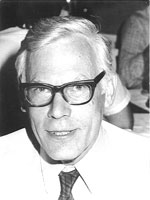
Traugott Frederking, 2000
|
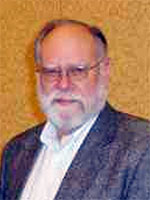
Peter Kittel, 2003
|
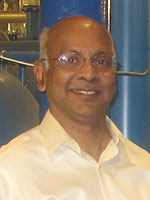
Rao Ganni, 2005
|
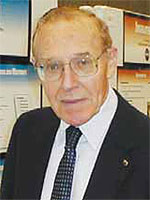
Klaus Timmerhaus, 2005
|
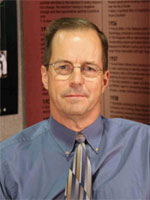
Steven Van Sciver, 2007
|
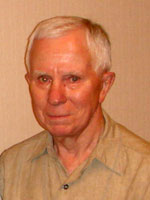
Glen McIntosh, 2009
|
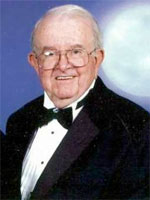
Thomas Flynn, 2009
|
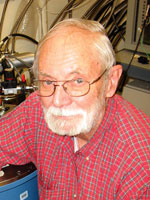
Peter Mason, 2011
|
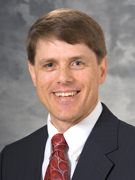
John Pfotenhauer, 2013
|
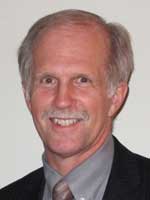
Tom Peterson, 2013
|
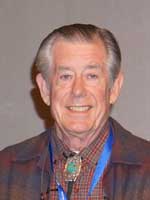
Ron Ross Jr., 2015
|
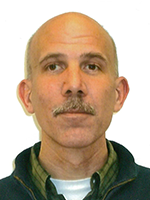
Dr. Peter Knudsen, 2017
|
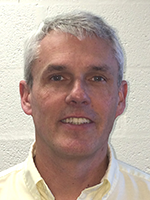
Dr. Peter Shirron, 2017
|
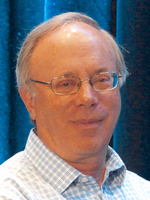
Dr. Michael DiPirro, 2019
|
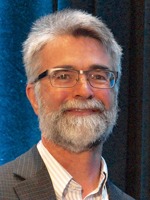
Joel Fuerst, 2019
|
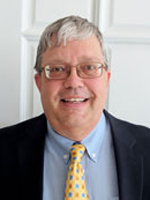
Dr. John Weisend II, 2021
|
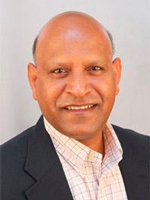
Dr. Sastry Pamidi, 2021
|
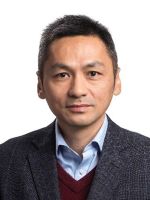
Dr. Wei Dai, 2025 |
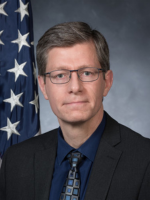
Michael Meyer, 2025 |
|
Robert W. Vance Award
(Criteria and Nomination procedure)
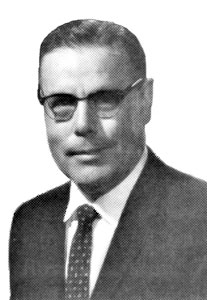
The Robert W. Vance Award was established to honor persons for their dedication and long-term commitment to the advancement of CSA. It is the first award ever given by the Society. The Vance Award is usually given every odd-numbered year during the CEC conference.
Vance Award Recipients
- 1996 Robert W. Vance (deceased)
In recognition of his dedication and long-term commitment of time and energy to the advancement of the Cryogenic Society of America.
- 1998 Romuald Szara, University of Chicago (deceased)
For being responsible for the fact that the society was still going strong, having helped move the society back to Illinois when it had fallen on hard times in California. He served long and faithfully as Midwest Chapter Chairman, CSA President, Chairman of the Board and Treasurer. He was truly dedicated to CSA.
- 2001 Dr. Ray Radebaugh, NIST Boulder (retired)
An acknowledged leader in the world of cryogenics, Ray certainly has contributed to our Society. His contributions to CSA are numerous. … He serves on the Cold Facts editorial board as well as wrote the popular Cryo Frontiers column for years. He is always available to help with out Ask the Experts feature. He has taught every Short Course symposium since we began that effort; and he even volunteered and invited us to sponsor the Short Course he taught in conjunction with the last Cryocoolers Conference. He is a strong supporter of our Society and has been very generous with his time and considerable talents.
- 2003 Dr. John Weisend II, Stanford Linear Accelerator Center, now at European Spallation Source
In gratitude and appreciation and in recognition of his dedication and long-term commitment of time and energy to the advancement of CSA, which he had served on its board as a member and as head of the Education Committee, organizing numerous Short Courses.
- 2004 James Missig, Teratech Cryogenic Systems, Inc.
A member of CSA for almost 40 years, he joined the Society in 1967 and made significant contributions on the local and national level as chairman and president of the Midwest Chapter as well as the National Society. He attended every meeting and made significant contributions to the early success of our organization. If any person is worthy of receiving the Vance award for outstanding service to the Society, that person is James R. Missig.
- 2005 J. Patrick Kelley, Los Alamos National Laboratory (retired)
For his many years of service to the CSA and the field of cryogenics. Over the years Pat has served as President and Chairman of CSA, in addition to serving on the Cryogenic Engineering Conference board.
- 2009 Joel Fuerst, Argonne National Laboratory, now at SLAC as LCL-II-He Cryogenic Systems Manager
For long-term service to the Cryogenic Society of America. The award is a token of the Society’s great appreciation for his 18 years of service to CSA, as Midwest Chapter Chairman, President and Board Chairman, his assistance in revitalizing the organization’s bylaws and committee structure, and for initiating development of the highly successful CSA website. Fuerst’s dedicated service perfectly exemplifies what the Robert W. Vance Award was intended to recognize.
- 2013 Louis J. Salerno, NASA Ames Research Center (retired)
For his years of dedicated service that have significantly benefited the CSA in many ways. A long-term contributor to the Cryogenic Society of America, Salerno is a Lifetime Member, a former president of the Society, a founder of the Northern California chapter, a major donor to the Award for Excellence in Cryogenics Research, the chair of the 1999 Space Cryogenic Workshop, and instigated the merger of the Space Cryogenic Workshop into the Society.
- 2015 John Urbin, long-time board member and former CSA president, Linde Cryogenics (retired)
For his long and supportive service to CSA and his contribution to enhancing the stature of the society internationally.
- 2017 Peter Gifford, Cryomech, Inc. (deceased)
Honored posthumously for his long and supportive service to CSA and his contributions to enhancing the stature of the society internationally, including the establishment of the William Gifford Award.
- 2019 Laurie and Werner Huget
For being instrumental in rebuilding CSA and for their years of dedication to the growth and influence of the society through Cold Facts magazine and its Buyer’s Guide, building the five CSA websites and electronic news sources, hosting and managing CSA headquarters and staff, running the Space Cryogenics Workshop, short courses and webinars. They have garnered significant support from a growing number of Corporate Sustaining Members and built relationships for CSA with several major cryogenics and superconductivity conferences–enhancing the stature of the society internationally.
- 2023 Rich Dausman, Bluefors
For his strong support of the Cryogenic Society of America since he joined Cryomech in 1976. He has served on the Board of Directors of CSA since 2013 – serving as Treasurer since 2015. He is also the current CSA President-Elect. Rich hosted ICC-18 in Syracuse, including the successful CSA Short Courses to enhance knowledge in the cryogenics community. Rich has served as President of Cryomech, now Bluefors Cryocooler Technologies, since 2020. He has promoted the cryogenics community by leading the team, which has innovated from the first commercially available pulse tube cryocooler to the most advanced pulse tube cryocoolers in the industry today.
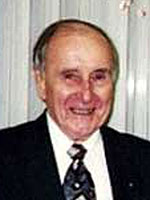
Romuald Szara, 1998
|
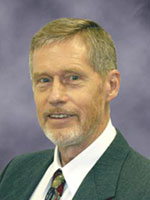
Ray Radebaugh, 2001
|
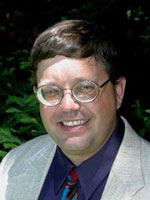
John Weisend, 2003
|
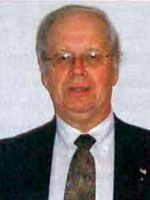
James Missig, 2004
|
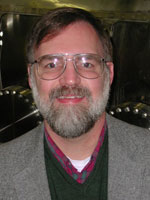
J. Patrick Kelley, 2005
|
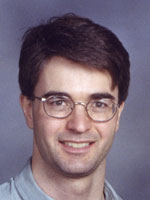
Joel Fuerst, 2009
|
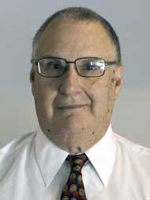
Lou Salerno, 2013
|
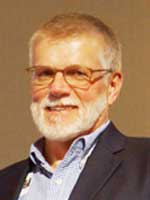
John Urbin, 2015
|
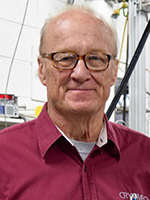
Peter Gifford, 2017
|
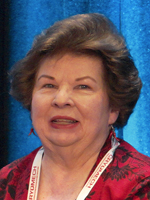
Laurie Huget, 2019
|
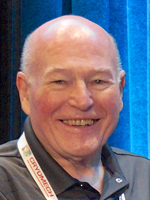
Werner Huget, 2019
|
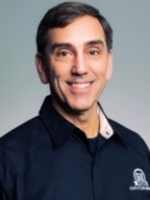
Rich Dausman, 2023 |
|
|
|
William E. Gifford Award
(Criteria and Nomination procedure)
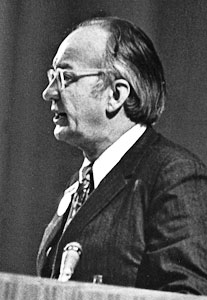
The William E. Gifford Award is named in honor of Mr. Gifford, co-inventor of the Gifford-McMahon cycle and founder of Cryomech, Inc. Nominees must be actively performing research using a pulse tube or Gifford-McMahon cycle cryocooler as a key component. The Gifford Award is given every odd-numbered year during the CEC conference.
Gifford Award Recipients
- 2015 Dr. Lionel Duband and his team at the Commissariat à l’Energie Atomique et aux Energies Alternatives (CEA) and their ARTEMIS project. The award was accepted by Dr. Jean Marc Duval on behalf of Duband and the CEA team.
- 2017 Dr. Kurt Uhlig of the Walther- Meissner Institute, for his groundbreaking work in developing the world’s first dry (cryogen free) dilution refrigerator using a 4 K pulse tube cryocooler. His subsequent R&D led to many innovations and improvements to dry dilution refrigerators and fostered the creation and growth of several manufacturers. A brilliant experimentalist, his work has inspired the international cryogenics community.
- 2019 Dr. Ram C. Dhuley and his Illinois Accelerator Research Center team at Fermi National Accelerator Laboratory: for their work in the design and development of cryocooler-based cooling systems for superconducting particle accelerators and for demonstrating excellence in the use of cryocoolers for ultralow-temperature contact resistance characterization.
- 2025 Dr. Ryan Snodgrass for his outstanding contributions to the field of cryogenics, particularly in the areas of pulse tube refrigerators and Gifford-McMahon cryocoolers. His research has advanced the fundamental understanding of these coolers, particularly at temperatures near 4 K, where real-fluid physics dominate their performance. Ryan's work, including his patent on dynamic acoustic impedance matching, has led to improved system efficiency, reduced cooldown times, and lower power consumption in pulse tube refrigerators. As a leader of the Cryocoolers Team at NIST, he has spearheaded groundbreaking applied research, securing substantial funding and guiding the next generation of cryocooler technologies.
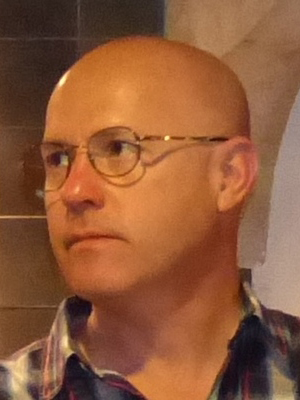
Lionel Duband, 2015
|
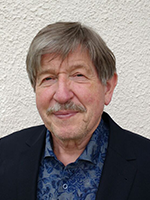
Dr. Kurt Uhlig, 2017
|
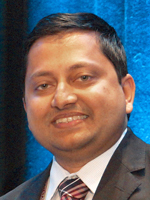
Dr. Ram C. Dhuley, 2019
|

Dr. Ryan Snodgrass, 2025
|
Cryogenic Society of America Technical Awards
(Criteria and Nomination procedure)
The Cryogenic Society of America offers the following awards to recognize significant achievement in particular areas of cryogenics. Technical Awards are usually presented during the CEC conference.
- Award for Excellence in Cryogenic Research: This award is given for research contributions in a particular area leading to a major scientific advance in the cryogenic field, i.e., discoveries of applicable new properties of materials, development of theoretical models explaining or predicting the behavior of fluids, materials, or systems at cryogenic temperatures, research focused on sub-atomic particle physics in the cryogenic regime, etc. The applicant must have had at least one paper relevant to the contribution published in a peer-reviewed venue.
- 2011 Dr. Jeffrey Feller, NASA Ames Research Center
For his significant contributions in the field of active cooling for cryogenic propellants and his leadership in the field of zero boiloff storage of hydrogen in space.
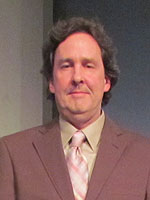
Jeffrey Feller, 2011
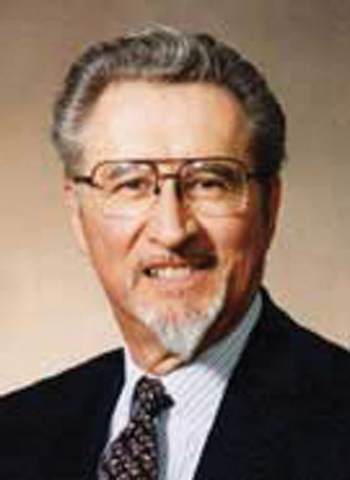
- George T. Mulholland Memorial Award for Excellence in Cryogenic Engineering: This award is named in memory of George T. Mulholland, who served on the CSA Board as Secretary, and was a Corporate Sustaining Member of CSA. The award is given for notable engineering development in a particular area leading to a major contribution in the cryogenic field, i.e., markedly increasing cryocooler efficiency, developing a novel cryogenic system for fusion applications, improving biomedicine by using cryogenics, etc. The applicant must have had at least one paper relevant to the contribution published in a peer-reviewed venue.
- 2009 Roberto Than, Cryogenics Group Leader, Brookhaven National Laboratory
For his significant engineering contributions to the field of cryogenics, especially at the SSCL under George Mulholland’s direction, and also in industry and on the RHIC project at Brookhaven.
- 2011 Kelly Dixon, 12 GeV Project Engineer, Thomas Jefferson National Accelerator Facility, now at FRIB
For notable engineering development leading to a major contribution in the cryogenic field, specifically the development of High Temperature Superconducting Current Leads at BWXT and his supervision of the 12GEV upgrade cryoplant at the Thomas Jefferson National Accelerator Facility.
-
2015 Dr. Xihuan Hao, cryogenic research engineer at Advanced ResearchSystems, Inc., now at Cryomech, Inc.
For demonstrated excellence in his research work in the field of cryocoolers with applications in areas such as cryosorption pumps, superconducting magnets and particle physics. He has targeted improvements in cooling performance and has successfully developed a 1.75 W at 4.2K pneumatic-drive GM cryocooler. His technical achievements are expected to create industrial breakthroughs in the field of GM refrigerators, improving their performance and reliability.
- 2017 Dr. Toru Kuriyama, Toshiba Corporation
For his profound impact on the field on cryogenics. He was the first to demonstrate 4 K operation of a Gifford McMahon cryocooler by using spherical powder of ER3Ni in the regenerator in place of lead spheres, and was the driving force at Toshiba to produce these high quality powders. His work led to the commercialization, through Sumitomo, of 4 K GM cryocoolers and later to 4 K pulse tube cryocoolers. He was also the first to cool a high-field NbTi superconducting magnet without liquid helium, using a 4 K GM cryocooler to cool conductively.
- 2019 Dr. Srinivas Vanapalli, Faculty at University of Twente
For his ongoing impact on the field on cryogenics. He was a pioneer in the snap freezing of human tissue which could lead to significant improvements in the healthcare industry. He is further recognized for his ongoing efforts in other cryogenic engineering areas including gas-gap switches for flat-panel displays and investigating the mechanics of liquid nitrogen cooling by forced helium gas bubble evaporation.
- 2021 Dr. Jingyuan Xu, Faculty of Engineering, Department of Chemical Engineering, Imperial College London
For her outstanding contributions to the field of cryogenics. In particular, the field of sustainable cooling technology owes much to her significant developments and advances on thermoacoustic refrigerators, pulse tube cryocoolers, Stirling devices and other cooling devices, by making breakthroughs in cryocooler efficiency as well as developing novel original concepts. She is further recognized for her technical leadership in the design and optimization of cryogenics systems, research expertise for studies of next-generation clean cooling technologies, and ongoing efforts in other areas of cryogenics including cryogenic storage and cryogenic gas liquefaction. She has also contributed to the broader cryogenic community by actively participating in international conferences, mentoring students and colleagues, and publishing research papers. She was the winner of “Gustav and Ingrid Klipping Award” by International Cryogenic Engineering Committee (ICEC).
- 2023 Shrikant Pattalwar, Senior Cryogenics Engineer and Project Leader, Accelerator Science and Technology Centre at the UKRI-STFC Daresbury Laboratory
For his leadership of both the cryogenics and systems integration for the Daresbury Vertical Test Facility. This unique facility is the UK’s only horizontal dressed SRF cavity test stand. It is particularly notable for its novel configuration, of which Shrikant was the originator, whereby liquid helium consumption is reduced by more than 70% in comparison with conventional facilities. The facility has enabled 2 K qualification of the ESS high-beta cavities (a key part of the UK’s IKC to ESS), and is supporting the UK’s participation in PIP-II (HB650 cavity testing will begin later this year).
- 2025 Santhosh Kumar Gandla, Engineering Manager-New Product/R&D, Sumitomo (SHI) Cryogenics of America, Inc.
For his exceptional contributions to cryogenic engineering, particularly in the development of mobile cryogenic systems for precooling and warming superconducting magnets. His innovative work has led to the design of systems that reduce liquid helium consumption and MRI downtime, significantly benefiting the MRI industry globally. Additionally, Santhosh played a key role in developing the CH-160D2LT single-stage GM cryocooler, which provides impressive cooling power and efficiency at 30 K. His research on regenerators and alternate materials has further advanced cryogenic technologies.
- Award for Excellence in Cryogenic Operations and Support: This award is given for excellence in establishing, improving, or simplifying processes in cryogenic operations from small-scale to large-scale facilities or for excellence in the development or implementation of techniques involving the fabrication, joining, assembly, wiring, checkout, and/or operation of cryogenic systems, from laboratory research apparatus to large-scale commercial machinery. Official recognition of the excellence by the applicant’s employer, customer, or other peers is a condition of granting the award.
- 2009 Fabio Casagrande, Cryogenic Systems Group leader, Research Accelerator Division, SNS, ORNL; now Cryogenics Department Manager, FRIB, MSU
For his dedicated leadership toward improving the availability of the SNS, completing the complex design modifications for operating the SNS and effectively supervising the group’s engineers and technicians.
- 2017 Mathew Wright, FRIB/MSU
For demonstrating excellence while managing five different small- to large-scale cryogenic plants at the Thomas Jefferson National Accelerator Facility, the largest 2 K helium operation in the US. He provided operational sequence development, procedure development, assembly methodology, commissioning methods and design at Jlab. His technical ability and good rapport with co-workers are outstanding. Under his leadership, the complex cryogenic systems at Jlab supported the facility’s cryogenic demand year after year with unprecedented 24/7 availability. His dedication motivates the entire operations staff and he has repeatedly shown an excellent capability to plan for contingencies and provide options.
- 2021 Benjamin Hansen, Department Head of Cryogenic Operations – Technical Division at Fermilab
For his leadership as department head of the Fermilab Cryogenic Operations Department which is responsible for maintaining and operating six helium cryogenic test facilities. These facilities are a key element of many superconducting accelerator R&D test programs and projects. Under his leadership, these facilities have provided reliable and high availability operations throughout the LCLS-II Cryomodule test program, the PIP-II Injector Test and the Mu2e Solenoid test program. He was integral in the commissioning and operation of Fermilab’s Cryomodule Test Facility’s superfluid coldbox and cryogenic distribution system. He led the effort for the detection and suppression of SRF cavity microphonics caused by thermoacoustic oscillations in instrumentation and valves. He currently leads the upgrade of the cryogenic system at the IB1 test facility and is the Level 3 manager for the PIP-II CryoPlant.
- 2025 Swapnil Shrishrimal, Cryogenic Controls Group leader, SLAC National Accelerator Laboratory
For his exceptional leadership and technical excellence in cryogenic operations, particularly for his work on the LCLS-II Cryoplant at SLAC National Accelerator Laboratory. As Cryogenic Controls Group Leader, he led the automation of advanced cryogenic systems supporting some of the world’s most complex research infrastructures. He played a central role in the commissioning and control system development of the two large-scale (4 kW @ 2.0 K) cryoplants powering the world’s most powerful X-ray laser. Swapnil spearheaded the implementation of advanced control strategies, enabling full automation of LINAC cooldown from 300 K to 4.5 K with precise temperature uniformity, followed by rapid pump-down to 2.0 K in just two hours. These innovations greatly improved system efficiency and stability. His contributions were critical to the successful commissioning of both the cryogenic system and the LINAC.
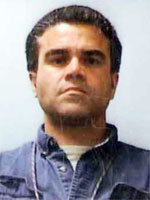
Fabio Casagrande, 2009 |

Mathew Wright, 2017 |
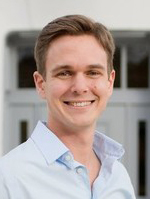 Benjamin Hansen, 2021 Benjamin Hansen, 2021 |
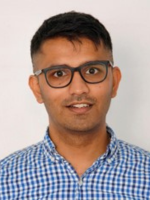
Swapnil Shrishrimal, 2025 |
|

























































